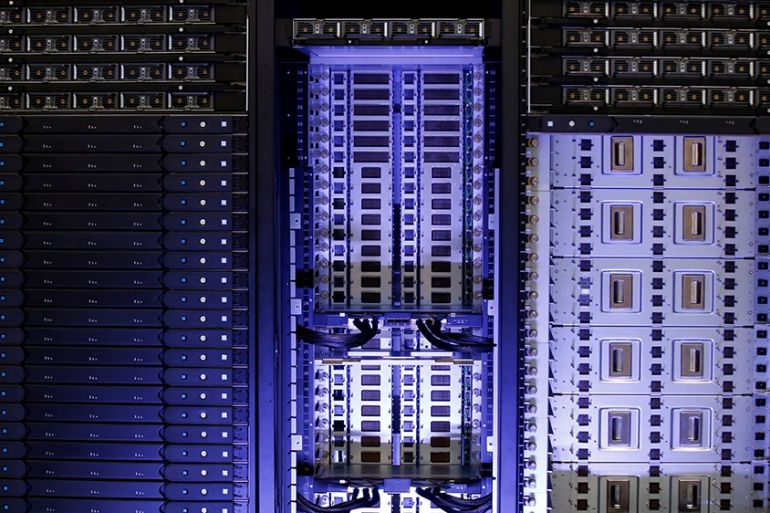US places new restrictions on China’s supercomputers
Citing a threat to national security, the US blacklists several Chinese technology firms and a government institute.

The United States Department of Commerce said on Friday that it was adding several Chinese companies – and a government-owned institute involved in supercomputing with military applications – to its national security “entity list”, which bars these parties from buying US parts and components without US government approval.
The export restriction announcement adding the firms to what is effectively a trade blacklist is the latest effort by the administration of US President Donald Trump to restrict the ability of Chinese firms to gain access to US technology amid an ongoing trade war.
Keep reading
list of 4 itemsTurkey halts trade with Israel, what’s the cost for both nations?
Can a new trade agreement boost pan-Africa trade?
Politics and convenience drive Mexico to be US’s top trading partner
The commerce department of the US – home to the two most powerful supercomputers in the world – said it was adding the companies Sugon, Higon, Chengdu Haiguang Integrated Circuit and Chengdu Haiguang Microelectronics Technology – along with numerous aliases of these five companies – to the list due to concerns about the military applications of the supercomputers that these Chinese entities are developing.
Wuxi Jiangnan Institute of Computing Technology, also on the list, is owned by the 56th Research Institute of the General Staff of China’s People’s Liberation Army, the commerce department said, adding that the institute’s mission is “to support China’s military modernization”.
The Chinese embassy in Washington did not immediately return a request for comment.
In 2015, the commerce department added China’s National University of Defense Technology (NUDT) to the list “because of its use of US-origin multicores, boards, and (co)processors to power supercomputers believed to support nuclear explosive simulation and military simulation activities”.
The commerce department said on Friday that since 2015, NUDT has procured items under the name Hunan Guofang Kei University using four separate, additional addresses not already on the entity list. The department said on Friday it is now adding Hunan Guofang and the four addresses to the list.
The companies “pose a significant risk of being or becoming involved in activities contrary to the national security and foreign policy interests of the United States,” the commerce department said.
In May, the Trump administration added China’s Huawei Technologies Co Ltd to the entity list along with 68 affiliates in more than two dozen countries. Trump has said that the US could resolve complaints about Huawei as part of a trade deal.
The world’s two largest economies have ratcheted up tariffs in a battle over what US officials call China’s unfair trade practices.
The US, China, the European Union and Japan have all announced plans to build supercomputers that are capable of performing exaflops, or one quintillion (1,000,000,000,000,000,000) calculations per second.
In March, a US government-led group said it was working with chipmaker Intel Corp (the largest supplier of data-center chips) and computer maker Cray Inc (which specialises in ultra-fast supercomputers) to develop a new technology by 2021: the country’s fastest computer for conducting nuclear weapons and other research. Developed by the US Department of Energy and the Argonne National Laboratory, this supercomputer – still in development – is called “Aurora with Intel”.
The $500m contract for the project calls on the companies to deliver a computer with exaflop performance.
Earlier this week, Nvidia Corp, a major chip supplier to supercomputer makers, said it was working with chip firm Arm Holdings, which is owned by SoftBank Group, to make chips produced by both companies work for supercomputers.
Ian Buck, vice president of Nvidia’s accelerated computing unit, said the effort was aimed at European and Japanese customers rather than Chinese ones, which are increasingly turning to domestic chips.
“In terms of China, I think they’ve clearly stated that they have a domestic accelerator and processor strategy that they will pursue, and that’s clearly what they are doing,” Buck said.